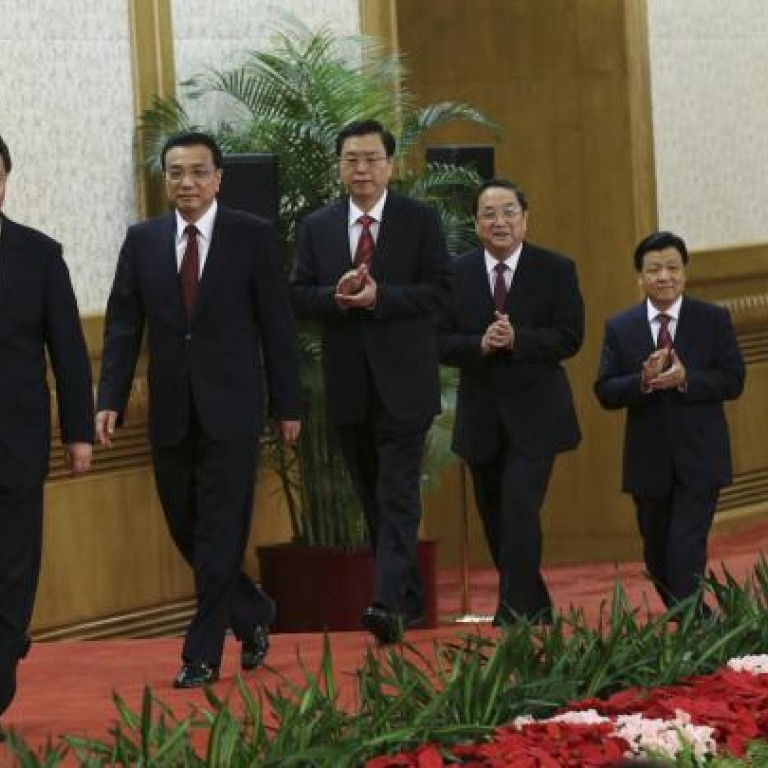
Xi Jinping will still keep tabs on Hong Kong
Party secretary will retain role of overseeing special administrative regions at least until March when he takes over as president
Xi Jinping has become the first top mainland leader to enter office with first-hand experience in dealing with Hong Kong and Macau, a portfolio he will still oversee until at least March.

While the result could cause some to wonder whether Beijing has diminished Hong Kong's importance, analysts said such speculation would be unfounded. The final Standing Committee included an unprecedented number of party officials with strong Hong Kong connections.
Xi, who has been tasked with overseeing the affairs of Hong Kong and Macau since 2007, will continue in the role until the National People's Congress in March, said Jiang Shigong , a former central liaison office researcher who is now a professor at Peking University.
Of the six other Standing Committee members, two have experience in handling Hong Kong affairs. Both Zhang Dejiang and Zhang Gaoli regularly met Hong Kong officials during their time in Guangdong.
Zhang Dejiang served as Guangdong party secretary between 2002 and 2007. Zhang Gaoli was Shenzhen party secretary from 1997 to 2001.
"It's true that we now have more top leaders who have experience and understanding of Hong Kong affairs," said Jiang, "But the personnel reshuffle is less important than the overall policy. The overall policy has been set and will not change."
Political analyst Johnny Lau Yui-siu agreed: "No matter who is assigned to oversee Hong Kong affairs, he will still have to follow the central government's collective directions and policy."
Lau said Xi would keep close tabs on Hong Kong even if the portfolio was later picked up by someone such as Liu Yunshan , who was top censor.
"Be it, say, Liu Yunshan or Li Yuanchao, he will just play a part in managing Hong Kong affairs, Xi will still play a leading role, although his primary focus will be occupied by other national and party affairs," Lau said.
Jiang hinted that Li would be the most likely candidate to help Xi manage Hong Kong. "According to tradition, it should be the vice-president," he said. This position now held by Xi is widely tipped to go to Li in March.
Other candidates include Yu Zhengsheng , who is to head the Chinese People's Political Consultative Conference, or Wang Qishan , who will lead the anti-graft watchdog.
Jiang said Beijing's policy towards Hong Kong would focus on stability and maintaining national integrity.
"The word 'balance' is the key," he said. "We need to strike a balance between maintaining the central government's authority and power and protecting Hong Kong's autonomy; between emphasising one country and two systems; and between integration and [respecting] Hong Kong's internal economic dynamics."

